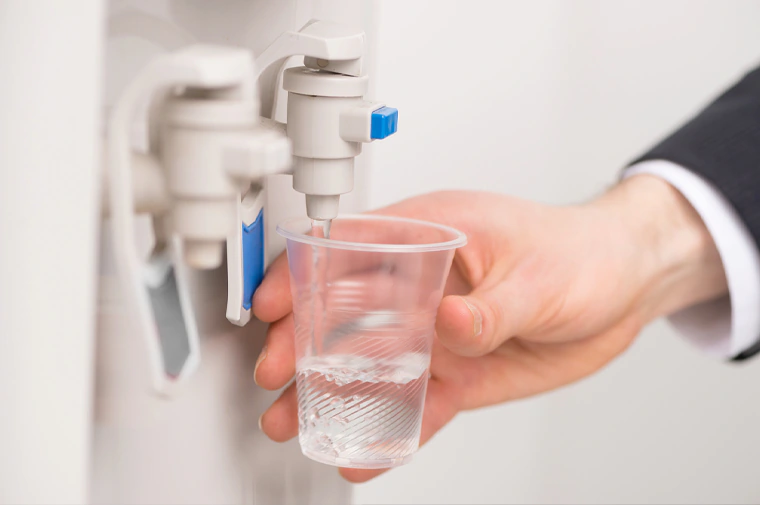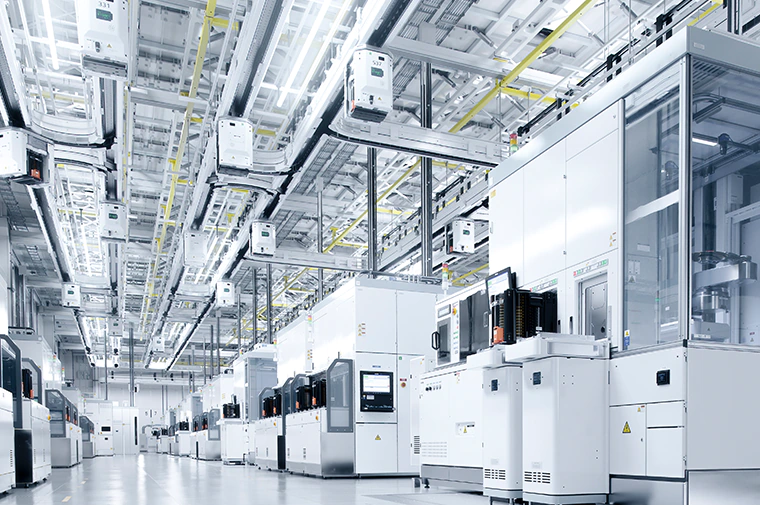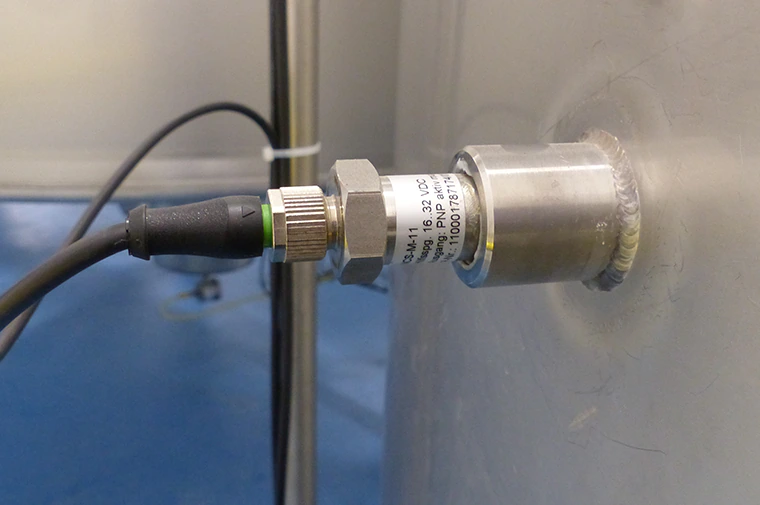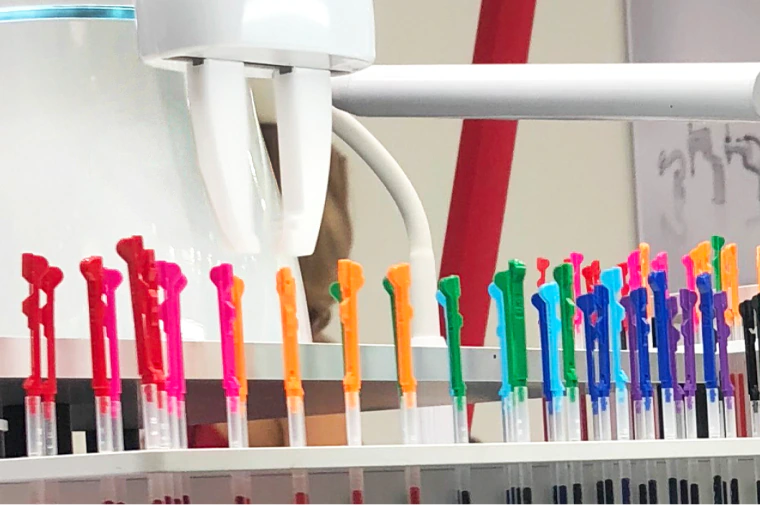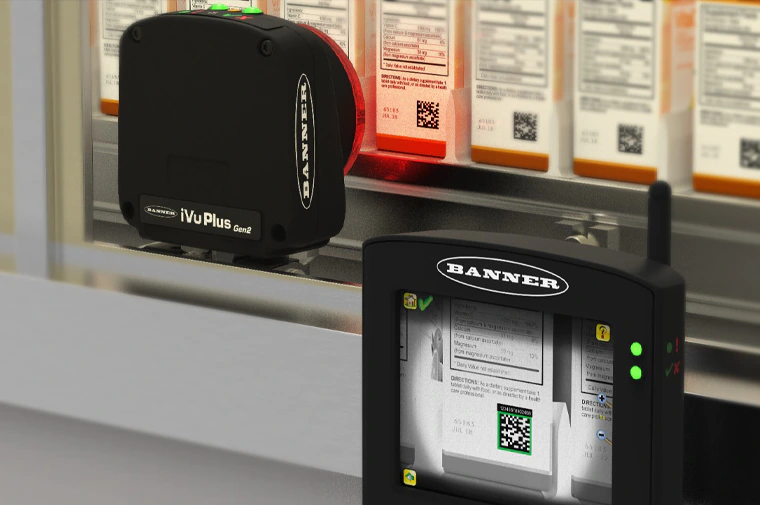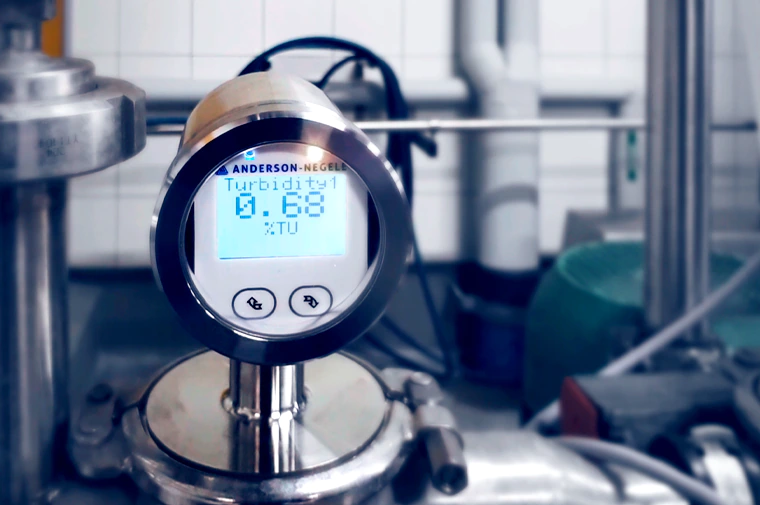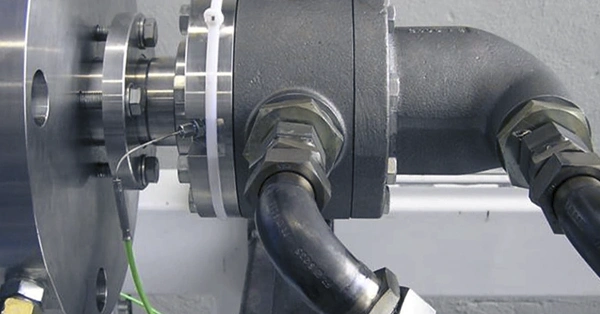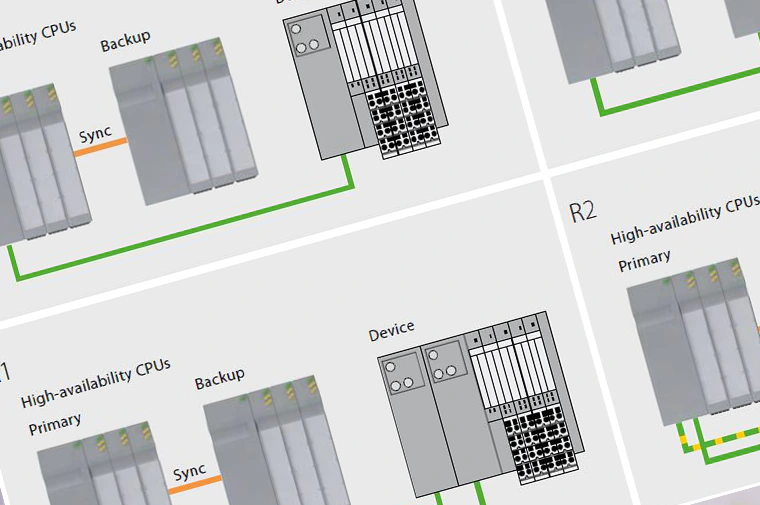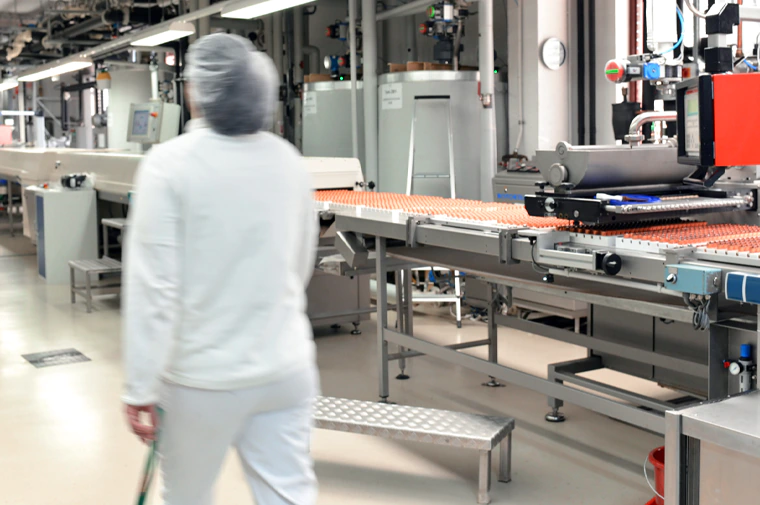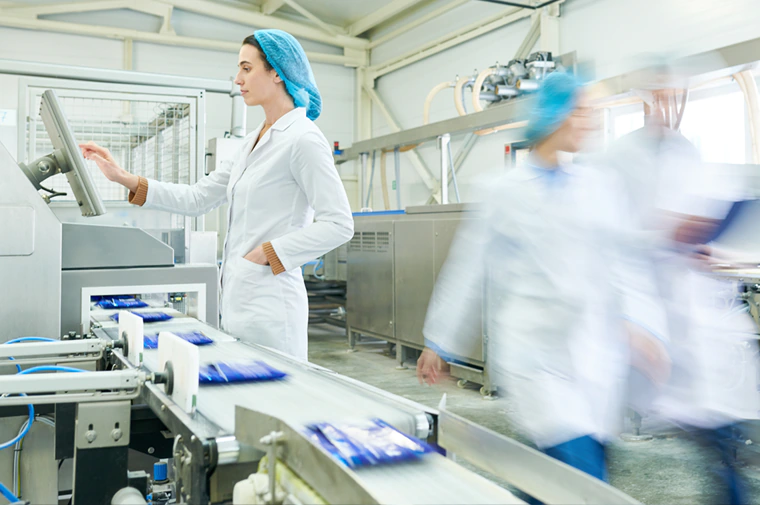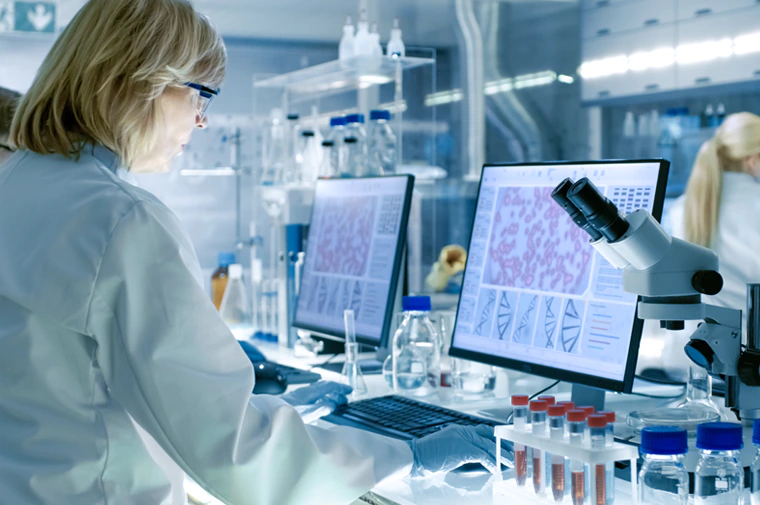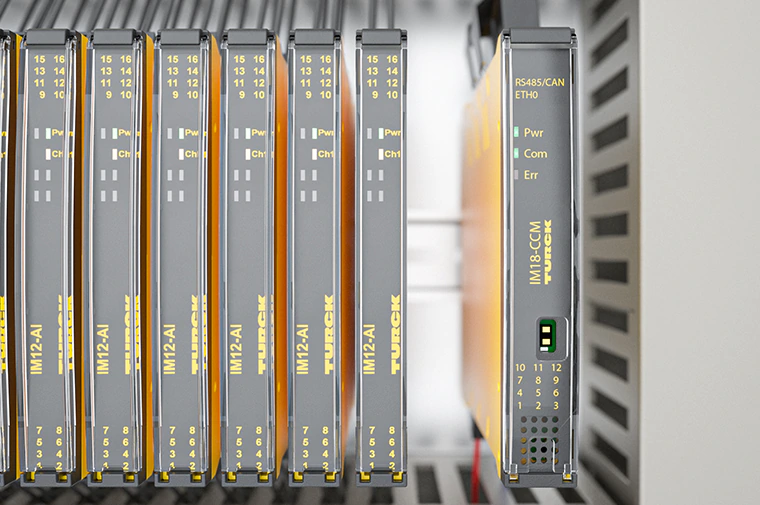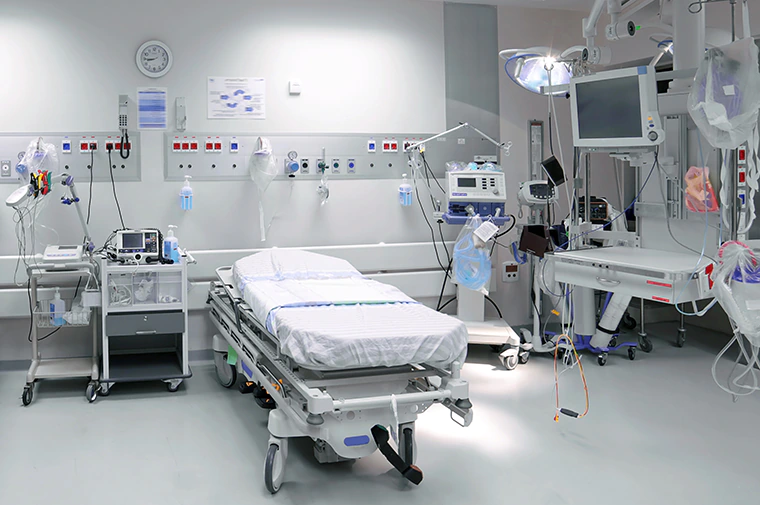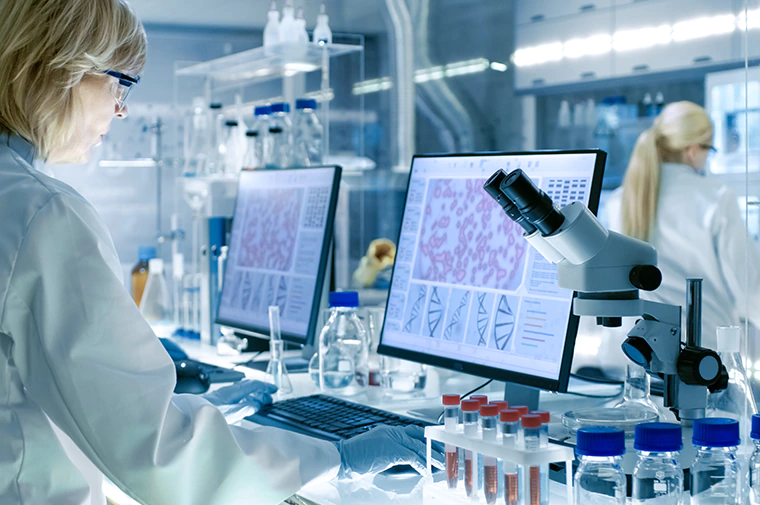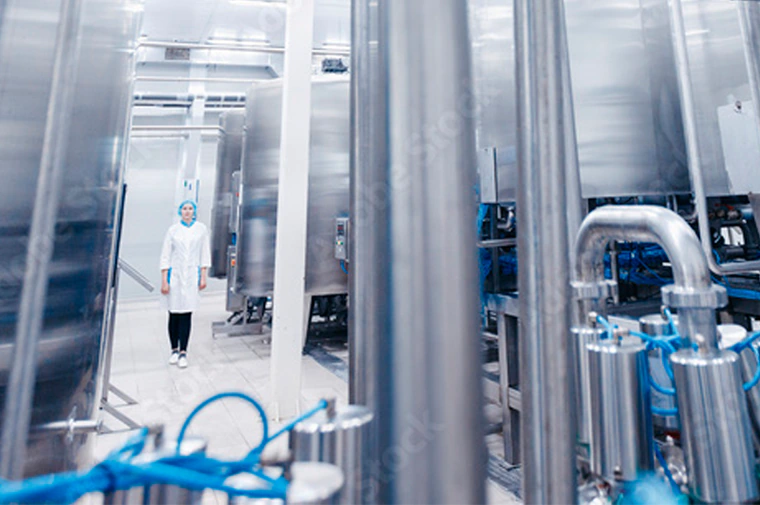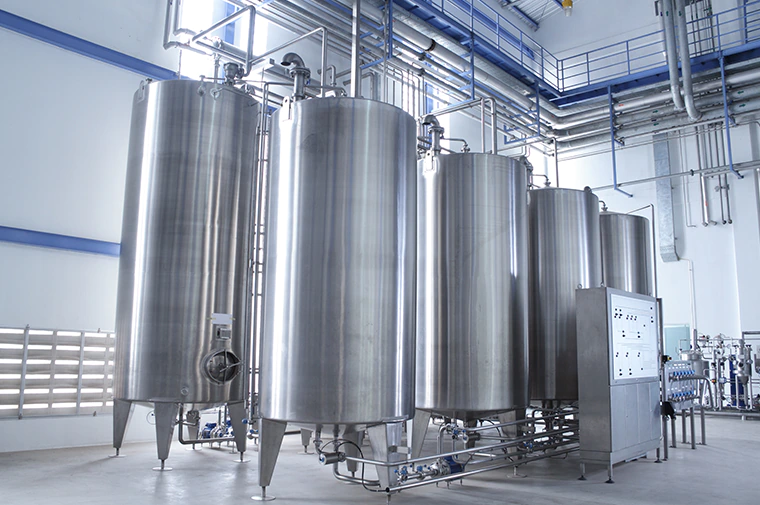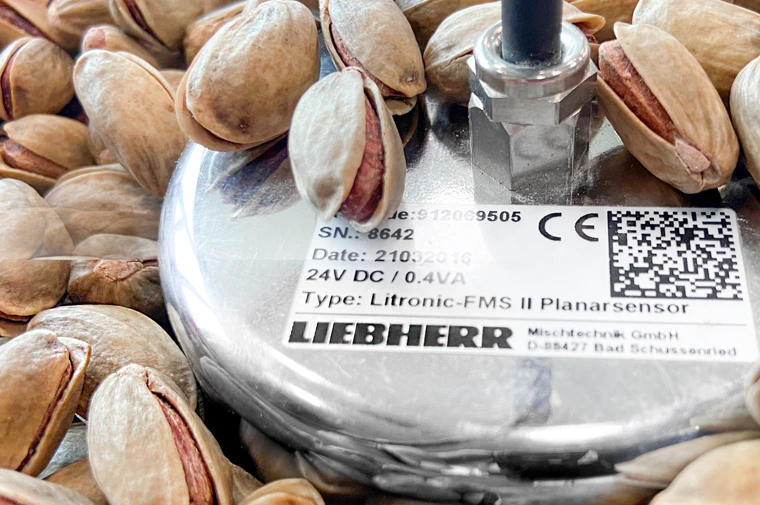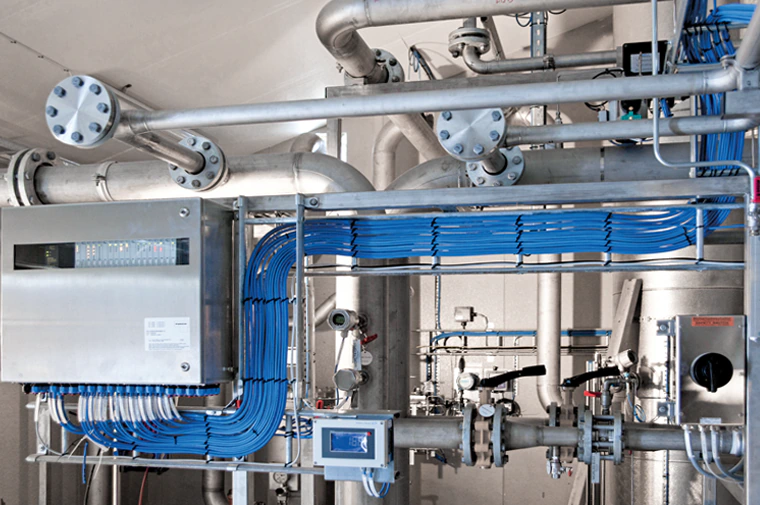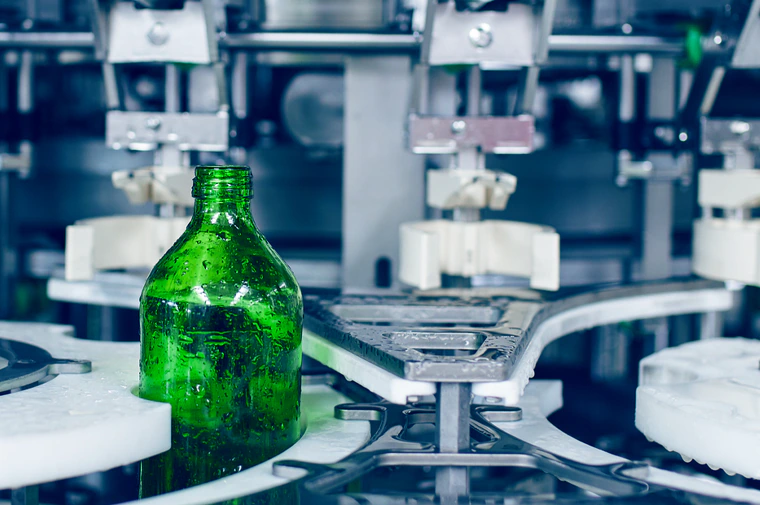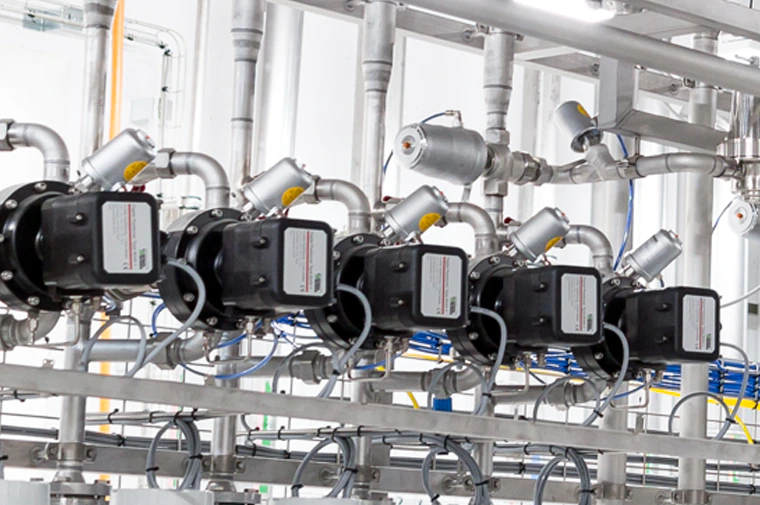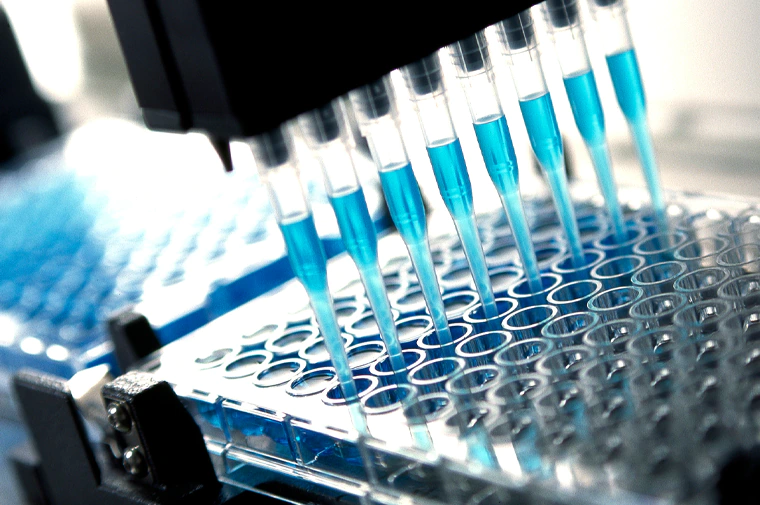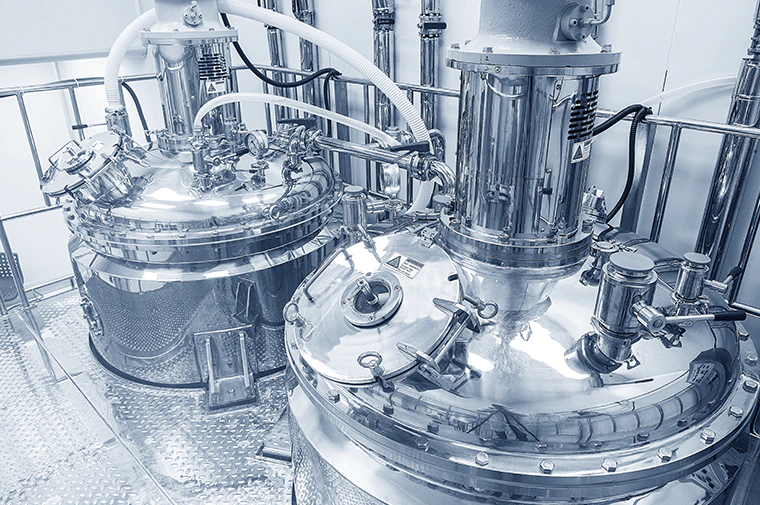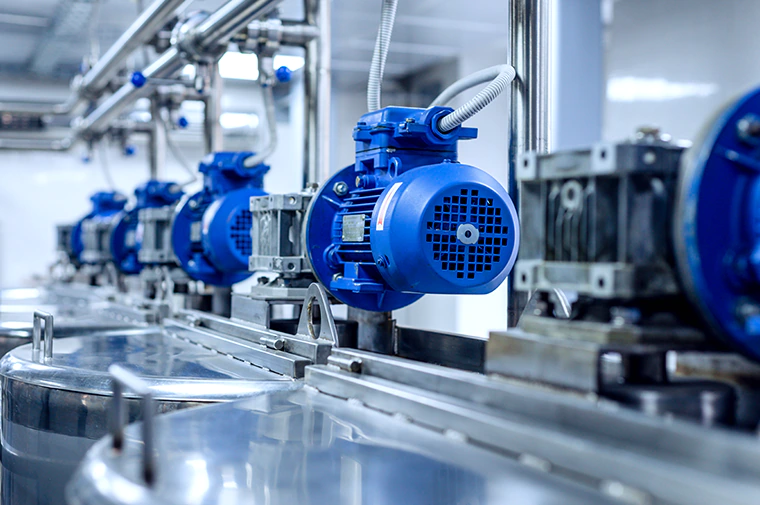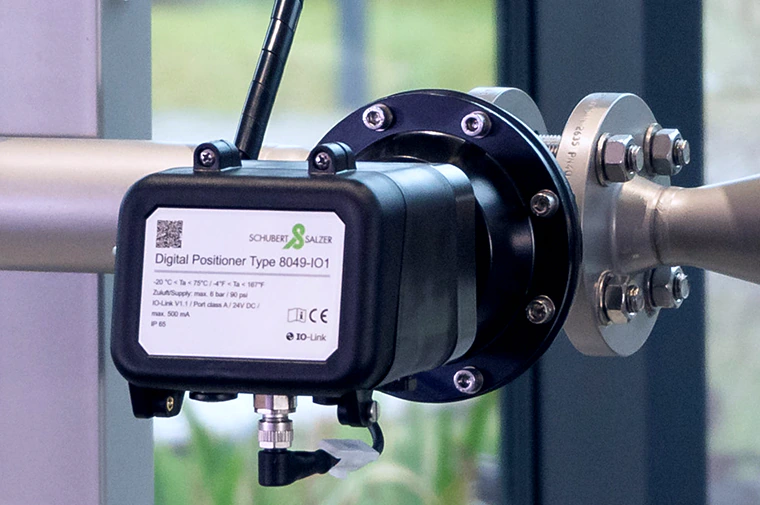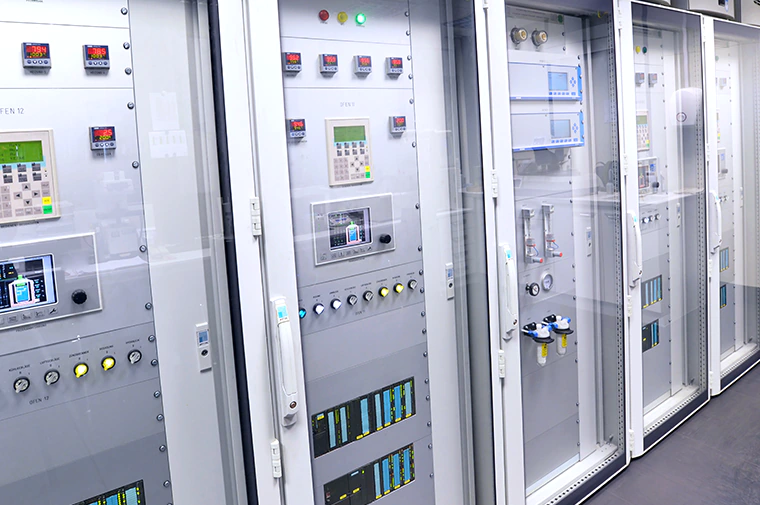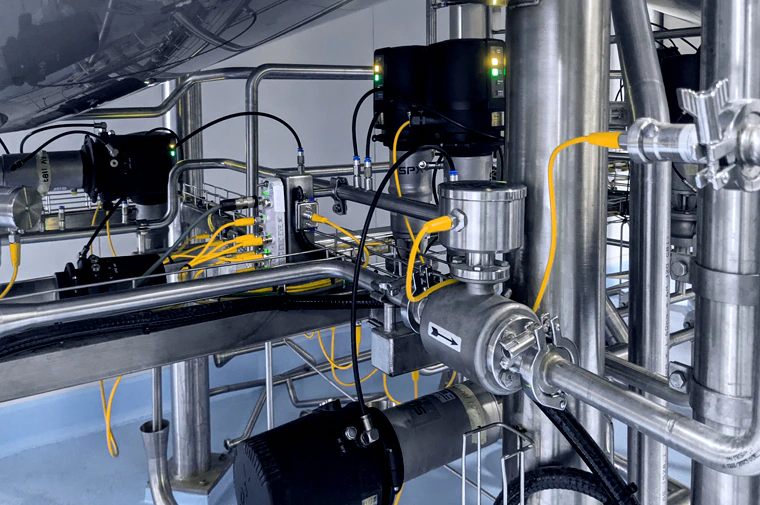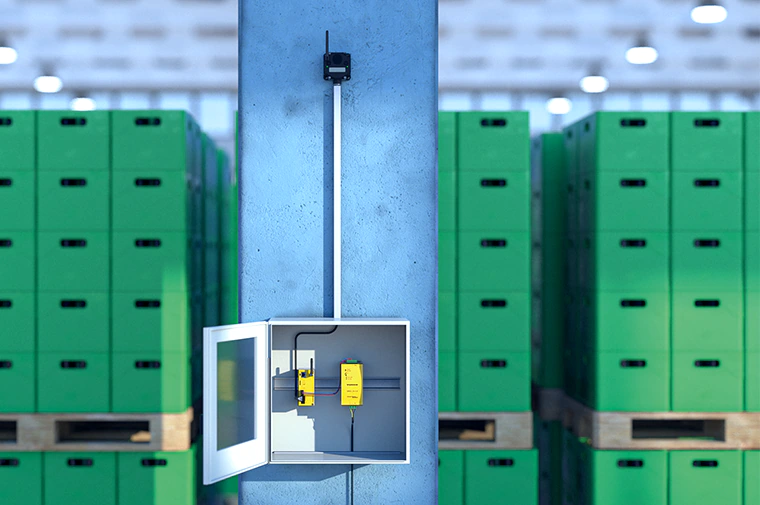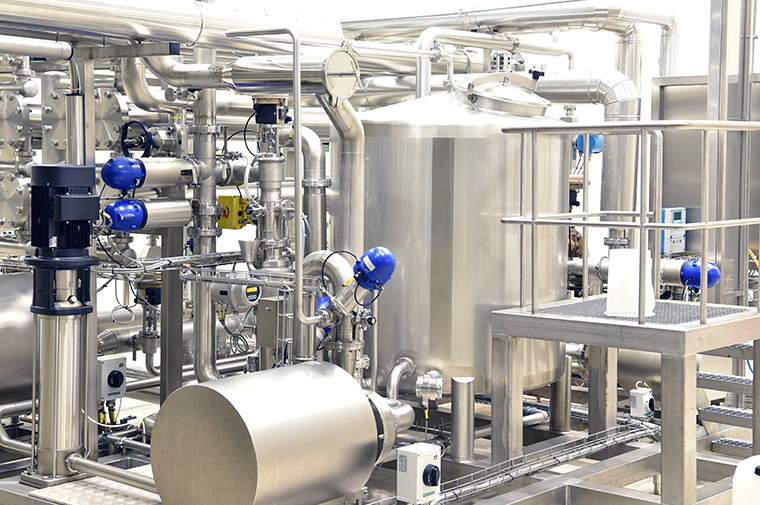
Sprinter in ISO Class 3: CSKR cleanroom actuators from THK
Avoiding particles when automating clean room processes is a top priority. With moving machine parts in particular, this key requirement is not that easy to meet since friction causes abrasion. THK‘s new CSKR series actuators run with minimal particle emissions despite maximum performance.
Manufacturing in a clean room is an absolute must for the microelectronics, food and pharmaceutical industries. This is because even the smallest contamination can render the end product unusable and result in high and costly reject rates. In other industries there are also clear trends towards clean production as customers become increasingly aware of the need for impeccable quality. However strict industry-specific regulations imposed by regulatory bodies or internal quality management specifications may be, one of the greatest challenges for clean room technology is reducing the emission of particles.
Every single system component counts
Maximising the extent of automation in production facilities is making a major contribution to clean production. This means that the entire system and each individual system component need to be suitable for clean rooms and certified in accordance with the relevant clean room class. In particular, mechanical parts that move are critical. It is therefore essential that these are thoroughly checked for clean room suitability during the evaluation.
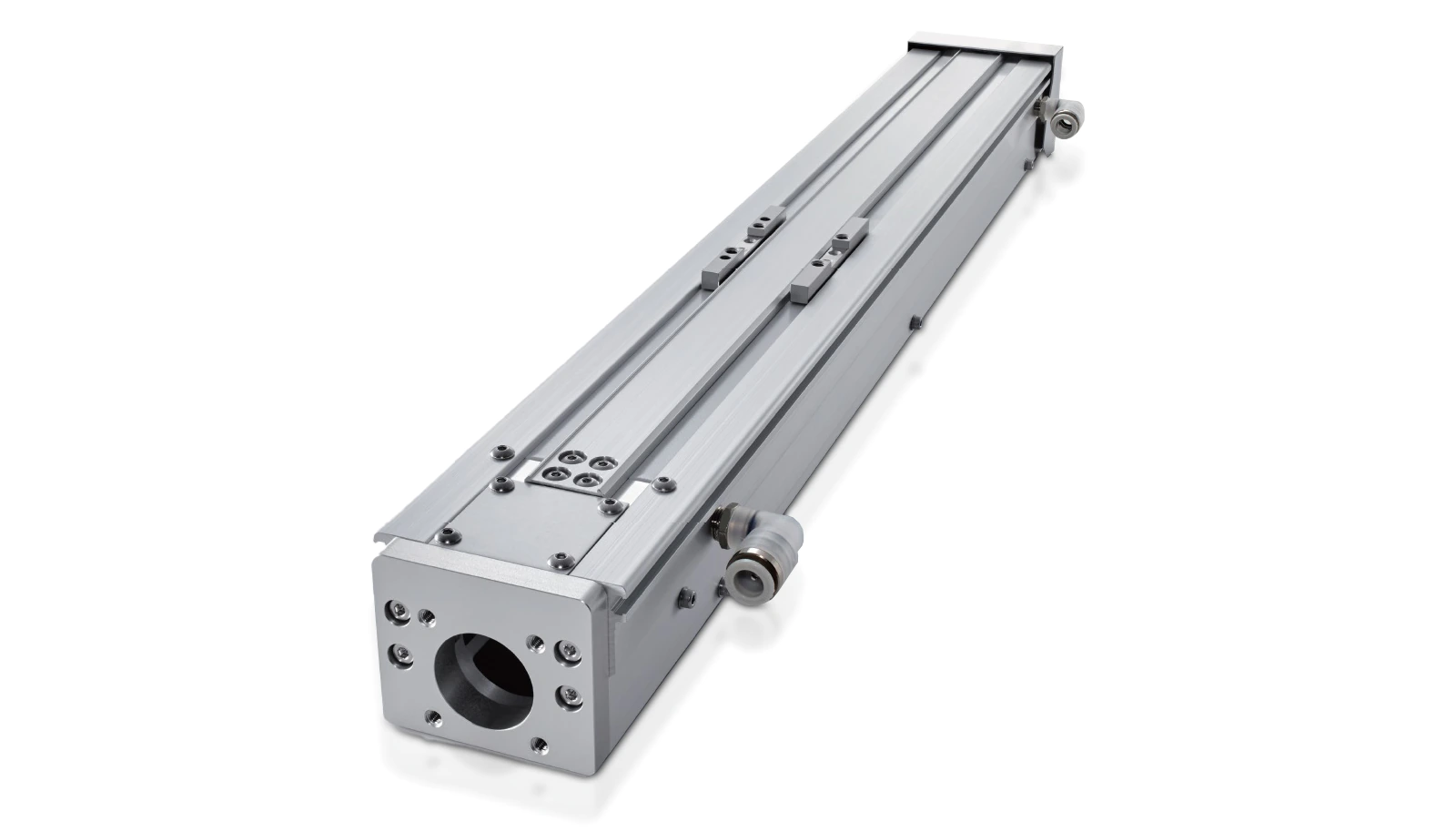
Great solution to the particle problem from THK
THK is a world-renowned specialist in motion technology and, in the new CSKR clean room actuator, it has developed an innovative linear unit releasing virtually no particles. This is achieved by a unique sealing mechanism on the longitudinal opening of the actuator. THK has also implemented a non-contact seal: The few particles created by friction are sucked out of the component interior by negative pressure at the end heads of the linear unit and these can then be fed to the air filters via a vacuum pump or sealing air. Special treatment of the component helps to minimise particle emissions. The lubricants are suitable specifically for hygienic environments or applications in a vacuum, making them clean room compatible.
A highly efficient and compact design which is functionally reliable
In addition to their dust-repellent properties, the CSKR clean room actuators from Bachofen technology partner THK excel with potentially record-breaking operating speeds in a range of 600 to 2000 mm/sec depending on the model. The high rigidity of the design ensures maximum precision. The compact design of the components reduces the space requirement – a welcome benefit given the high cost of clean room areas. Every square centimetre saved counts.
A consultation with Bachofen’s specialists is the best way to clean up any outstanding issues relating to hygienically flawless production. This is always based on the individual customer- and industry-specific requirements.
Downloads
Discover more linear motion guides
Discover more products from THK
Areas of application
-
Pharmaceuticals industry
-
Food industry
-
Medical technology
-
Semiconductor and microelectronics industry
-
Optical industry
Clean, through and through
-
Minimal dust generation
-
Prevents contamination of the surroundings
-
Cleanliness class 3 according to ISO14644-11
-
High operating speed, high rigidity, and long-term maintenance-free operation
Other focus topics in the area of chemical, pharma and food
Uniformity in diversity: the Turck family of fluid sensors
The world of fluid sensors is bewilderingly wide and diverse. There are countless types, features and designs that make it hard to choose the most suitable component for the...
Turck Ethernet Gateway for excom: make way for ethernet in the ex zone
The use of Ethernet in EX zones within the process industry was previously impossible due to safety issues. But now Turck has made a breakthrough with its GEN-3G Ethernet...
Transporting liquids: seeking the eco-friendly solution
The strict hygiene requirements in the industrial food production sector applies across the entire production chain. A key area of interest right now is also how to minimise your...
Sprinter in ISO Class 3: CSKR cleanroom actuators from THK
Avoiding particles when automating clean room processes is a top priority. With moving machine parts in particular, this key requirement is not that easy to meet since friction causes...
So nothing flares up in production: TSM temperature sensor from Anderson Negele
Process reliability is the top priority in the food and pharmaceutical industries. Disruptions affect producers’ ability to supply and can damage their reputation. Much depends on the reliability and...
Smart and alert: the COBOTTA compact robot
Due to space limitations, the use of robots often proves difficult. Programming is also a critical factor since, depending on the manufacturer, it can be a very lengthy process....
Reliable final inspections: eagle-eyed error detection
Packaging and labelling processes used in the food industry are mainly geared towards processing materials quickly. Final inspections take even greater precedence. These must be performed without any hitch...
Save instead of fishing in murky water: turbidity sensor ITM-51 from Anderson-Negele
Inaccurate phase separation in the food production industry leads to product losses, which quickly become expensive. These losses can be significantly reduced by switching at the right moment. With...
Reliable means safe: ATEX-certified rotary joints
Due to the friction they create, rotating connections form one of the hazard sources in explosion-risk areas, such as in the chemicals and pharmaceuticals industry. The pre-conditions in gaseous...
Profinet gains a foothold in process automation: S2 system redundancy now with IP67 and IP69K protection
Profinet has established itself as the communications standard for factory automation. Vehicle manufacturers and suppliers have been demonstrating the practical suitability of industrial Ethernet-based data exchange for a number...
Product identification: no cakewalk in the food industry
An identification system’s true value becomes most apparent when it is subjected to demanding general conditions. These are particularly challenging in the food industry. Due to its resistant properties,...
Pharmaceutical production: no opportunity for pirates
Fake is on the advance. Even the pharmaceutical industry has to fight against copies and counterfeits. One effective measure is seamless product identification across the entire production and distribution...
Meets the standards and remains ecological: parker legris liquifit
In branches of industry where hygiene is critical, there is no escape from Machinery Directive 2006/42/EC. The keen eye of the legislator is trained in particular on components that...
No risks in the control cabinet: the IM18-CCM control cabinet motor from Turck
Unplanned machine and system downtimes are a costly irritation for producers in the food, beverage and pharmaceutical industries. The cause can often be found in the control cabinet, which...
Connected to health: Parker Rectus connection technology
Regulators consistently prescribe new guidelines and standards to the players in the fields of medical technology and biotechnology. These guidelines and standards are compatible if the system manufacturers can...
Meets the standards and remains ecological: Parker Legris Liquifit
In branches of industry where hygiene is critical, there is no escape from Machinery Directive 2006/42/EC. The keen eye of the legislator is trained in particular on components that...
Measuring on the tank instead of in the tank: precision load cells from Anderson-Negele
Measuring content in process containers with complex shapes or in horizontal positions is not straightforward. Depending on the tank design, using conventional sensors for fill level measurements can lead...
Keeping an eye on the tank: L3 pressure transmitter from Anderson-Negele
If you cannot see what is going on inside tanks in food or pharmaceutical production, the processes are almost impossible to control. To ensure process reliability, the tank contents...
Integrated inline in the process: moisture measurement with Liebherr sensors
Traditional methods of moisture measurement may be justified in non-automated processes. However, these are rarely suited to use on production lines. Liebherr moisture sensors are very different. These function...
Universal I/O: Seamlessly from Ex to non-Ex
Decentralised I/O systems are becoming increasingly widespread across the chemicals and pharmaceuticals industry. Data transfer from explosion-risk process areas, high availability and accurate diagnosis and identification of fault sources...
Hygienic design: consistent down to the smallest connector
When constructing plants for industrial food production, every single detail needs to be considered when it comes to hygiene, and connection technology is no exception. Turck provides two product...
Hygienic valve technology: in accordance with all norms and standards
Valve technology ranks among the particularly demanding aspects for industrial food production plant. Valves usually have many standards and norms to fulfil in addition to the high, purely functional,...
Good spirits in the background: THK miniature guides
In the medical and health industries, reliable helpers are indispensable. Unseen in the background, they ensure that everything runs smoothly: conscientious, persevering and without ever showing any signs of...
Giving bacteria no chance: aseptic angle valve 6051 from Schubert & Salzer
Compliance with the strict hygiene standards of the food, beverage and pharmaceutical industries is a constant challenge for designers of production infrastructures. Every single part counts. The type 6051...
Safe procedures for machine operation: Turck CMVT-QR20 vibration and temperature sensor
The operation of rotating machines causes vibrations that can cause problems. Excessive temperatures are another risk factor. The CMVT-QR20 vibration and temperature sensor from Turck detects when it becomes...
Now remotely controlled by IO-Link: Positioner 8049 from Schubert & Salzer
In plant operation, personnel deployments on site may be time-consuming and awkward in some situations. This also applies to adjusting and maintaining control valves, which are often difficult to...
Modular alarm design in variations: K100 Pro Beacon hazard indicator from Banner
It is in the nature of industrial production that it is associated with safety risks. Where hazardous substances are involved in production and processing plants, potential risks cannot be...
The safe alternative to the Zener barrier: ATEX-compatible IMX12-SG strain gauge evaluation device from Turck
Strain gauge evaluation devices for use in ATEX zones are a rarity. The divide between ATEX and non-ATEX areas is particularly critical. With the IMX12-SG interface, Turck has unveiled...
Not a drop too much, not a drop too little: FMQ flowmeter from Anderson-Negele
Poor control of flow in production equipment pipelines will affect process efficiency and incur costs. The more accurate the measurement, the safer the production process. The FMQ flowmeter from...
Automated climate monitoring in the warehouse: Condition monitoring with Turck and Banner
When storing sensitive products, continuous temperature and humidity control is essential to prevent product losses. However, doing this manually requires a lot of effort. A complete condition monitoring solution...


